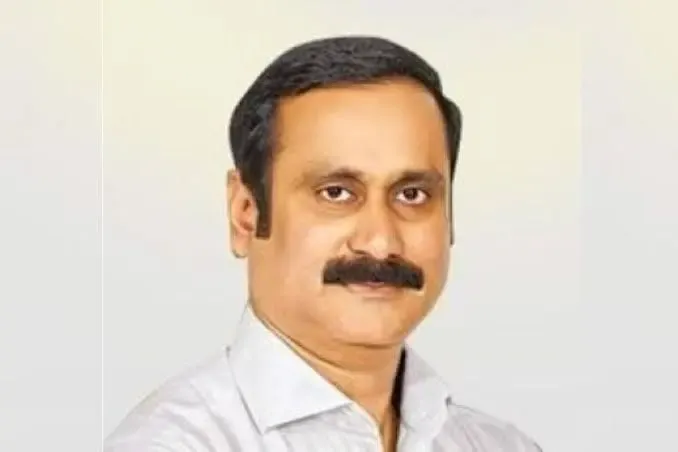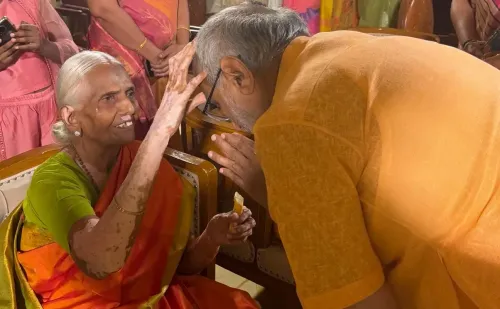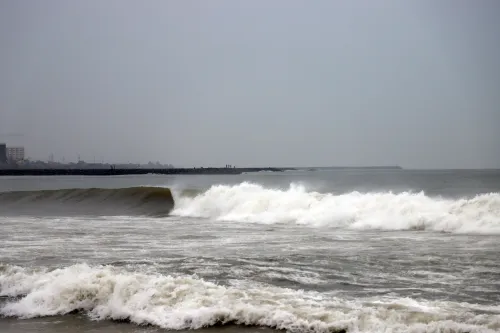How Can TN Government Resolve Chromium Contamination?

Synopsis
Key Takeaways
- PMK demands urgent action for chromium contamination in Ranipet.
- Contamination levels are alarmingly above safety standards.
- Comprehensive remediation plans are necessary for public health.
- Government's token efforts are deemed insufficient.
- Community mobilization is necessary for change.
Chennai, May 26 (NationPress) PMK President Dr. Anbumani Ramadoss has emphatically called on the Tamil Nadu government to devise a lasting and thorough solution for the persistent problem of chromium contamination in Ranipet. He criticized the government for initiating what he labeled as 'superficial projects' and cautioned that widespread protests will ensue if appropriate measures are not enacted.
In a statement released on Sunday, Anbumani pointed to a recent investigation by Anna University, which revealed that the chromium contamination in the SIPCOT industrial area and the Tamil Nadu Chromate and Chemicals Limited (TCCL) site results not only from the accumulated waste stored at TCCL but also from continual discharges by surrounding chemical plants.
“PMK has consistently insisted that the government take decisive corrective actions. The National Green Tribunal (NGT) even initiated a suo motu case regarding this issue. Following the NGT’s directives, the Tamil Nadu Pollution Control Board (TNPCB) has suggested an interim project to tackle the contamination. However, this is merely insufficient,” Anbumani stated.
Describing the scenario as 'extremely critical', he emphasized the necessity for a comprehensive removal of chromium waste and the restoration of soil and groundwater in the impacted regions.
“Safety protocols dictate that chromium levels in drinking water should remain below 0.05 milligrams per liter. Yet, in Ranipet, these levels are reportedly over 1,100 times higher,” he added.
He referenced a detailed remediation plan formulated six months prior, estimating the cost for chromium removal and site rehabilitation at Rs 223.17 crore. Moreover, an allocation of Rs 11.28 crore was proposed for the purification of water sources, alongside a monthly requirement of Rs 1.55 crore for the next decade to ensure water quality upkeep.
Anbumani urged the government to move beyond token efforts and promptly implement this extensive plan. “The health of thousands hangs in the balance. If the government continues to act sluggishly, PMK will organize a large-scale protest involving affected communities,” he warned.
He appealed to the state to prioritize the lives and welfare of its citizens and take immediate action toward sustainable environmental solutions in Ranipet.









